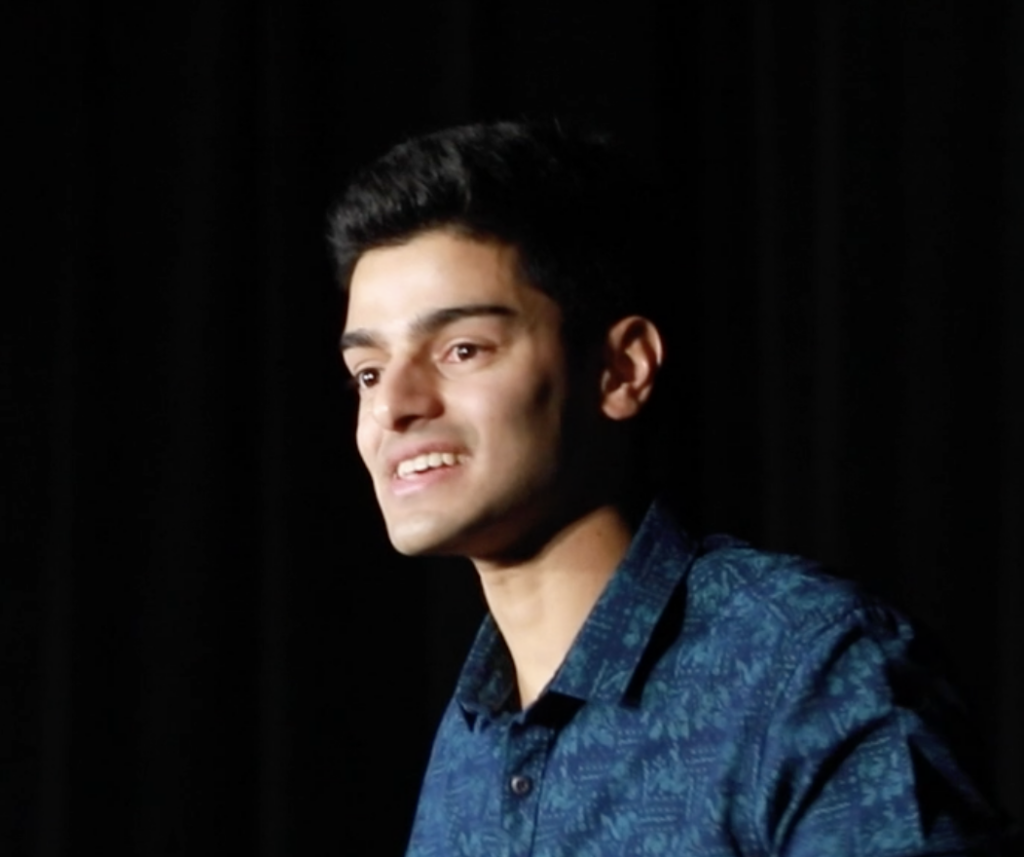
In student leadership, we often empower students to change the world. However, the prospect of changing the world can appear overwhelming and vague. What exactly does it mean? From a young person’s perspective, they may ask themselves: Where do I even begin?
Sometimes, I find myself questioning whether asking students to “change the world” is the correct question. What if we reframe the question to: What kind of change would you like to see in your community’s world, your family’s world, or even in one person’s world?
Considering the current resources and educational training available to students, this revised question seems much more attainable. However, does this question encourage students to move the needle? Does it encourage students to unintentionally start thinking small?
During my keynote presentations at schools and organizations, I always try to include a brief Q&A session towards the end of the presentation. I love the Q&A period because it provides an opportunity for students to challenge my ideas, question my research, and engage in open discussions. Depending on the age group, some questions may stray off-topic…“Wait so are you related to Shawn Mendes or not?”…”Do you prefer butter chicken or samosas?”. Nevertheless, 90% of the time, we stay on track.
Several months ago, during a presentation at a high school in Ontario, I presented the aforementioned idea. During the Q&A session, an ambitious student leader expressed their appreciation for the presentation, the stories, and the jokes. However, they struggled to grasp the concept of changing the world on an individual level. They questioned the tangible impact such an endeavour could have in the grand scheme of things. According to their perspective, if our goal is to make a global change, focusing on changing one person’s world would be futile.
In response, I offered an analogy: When we are born, it’s akin to dropping a rock into water, which results in the sound of a GONGK (as you can tell, I’ve never personally experienced giving birth). As the rock plunges into the water, ripples spread outward. These ripples represent our actions, both positive and negative, as they intersect with other ripples and other rocks. They influence the actions of other individuals, for better or for worse, and those individuals, in turn, impact the people within their immediate circles, and so on.
Despite the analogy presented, the student remained unconvinced and held onto their view. That’s perfectly fine, but I couldn’t help but feel a slight sense of frustration as I realized I hadn’t managed to deliver what the student was seeking. Consequently, I delved into further research to find more technically grounded explanations for this concept.
After a few days, I stumbled upon a concept I had learned during my undergraduate studies called Metcalfe’s Law. Although it may sound a bit tedious and involve some mathematical aspects, it is essential to explain it to students who lean towards analytical thinking. This law states that the value or impact of a network is proportional to the square of the number of connected users within the system (source: River Financial). In other words, if you have 1,000 users (such as students in your school), the value of your network would be 1,0002 = 1,000,000 (or 1,000 x 1,000). With the advancements in social media and telecommunications, this concept has become more prominent than ever before. On average, we will know, engage with, and interact with approximately 1,000 people throughout our lifetime (some students may already have 1,000 followers or friends on social media, and they likely know at least 20% of them). Each person within your network will know another 1,000 people, which means we are only one person away from reaching a million people (1,000 x 1,000), and two people away from reaching a billion people (1,000 x 1,000 x 1,000). Thus, the impact we strive to make on a daily basis, whether it is to change our community’s world, our family’s world, or just one person’s world, becomes exponential rather than linear.
Metcalfe’s Law
Source: Research Gate
Therefore, if we want to make an exponential impact and change the world, my encouragement would be to think big, but start with the people directly around you. It’s not as glamorous, or praised, but it’s undeniably effective in achieving the objective.
In closing, my question to you is not how can you change the world, but rather: what kind of change would you like to see in your community’s world, your family’s world, or even in one person’s world?
Also, butter chicken or samosas?
To learn more or book Dillon for a presentation, check out his speaking page here.
